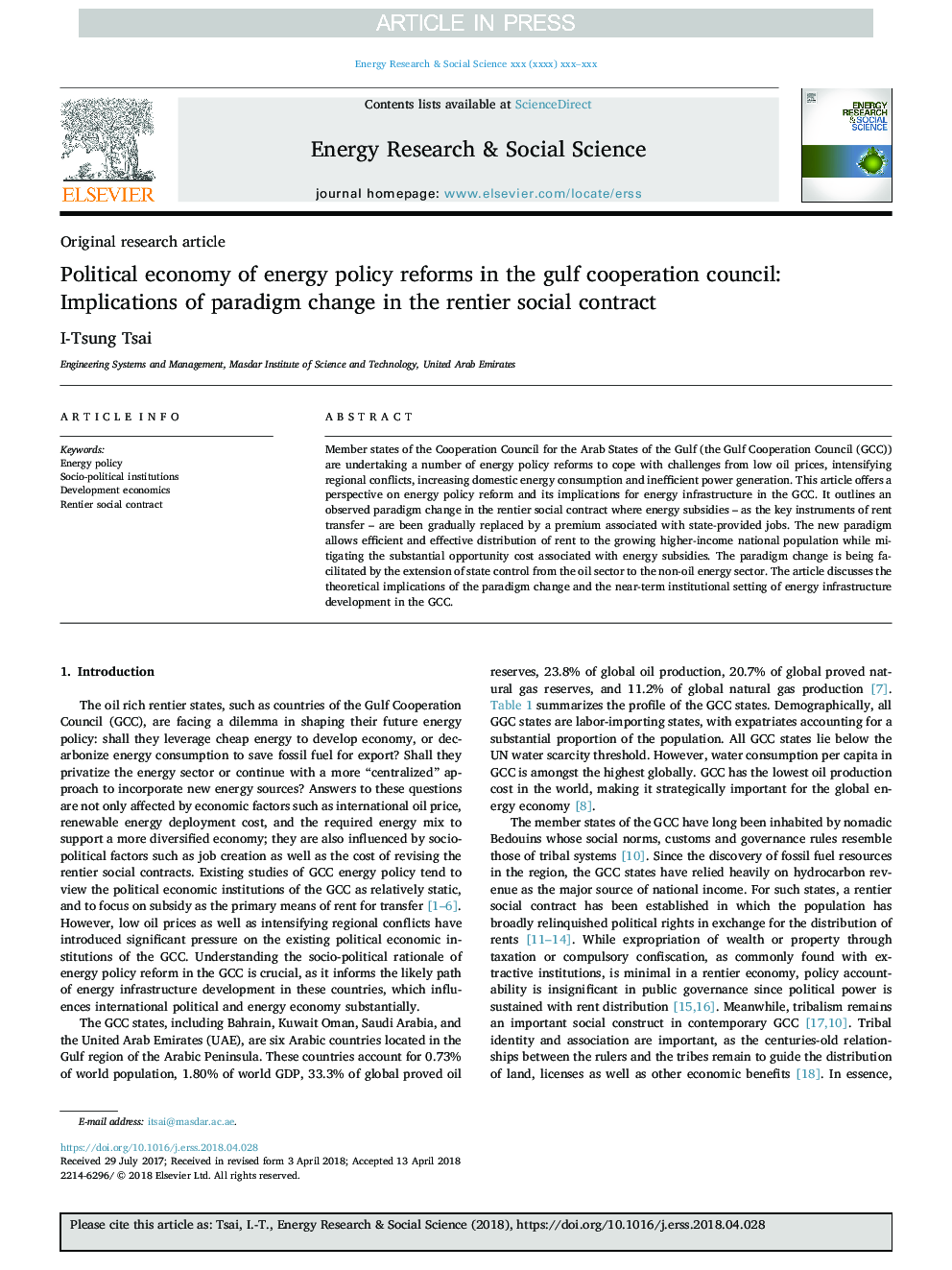| Article ID | Journal | Published Year | Pages | File Type |
|---|---|---|---|---|
| 6557398 | Energy Research & Social Science | 2018 | 8 Pages |
Abstract
Member states of the Cooperation Council for the Arab States of the Gulf (the Gulf Cooperation Council (GCC)) are undertaking a number of energy policy reforms to cope with challenges from low oil prices, intensifying regional conflicts, increasing domestic energy consumption and inefficient power generation. This article offers a perspective on energy policy reform and its implications for energy infrastructure in the GCC. It outlines an observed paradigm change in the rentier social contract where energy subsidies - as the key instruments of rent transfer - are been gradually replaced by a premium associated with state-provided jobs. The new paradigm allows efficient and effective distribution of rent to the growing higher-income national population while mitigating the substantial opportunity cost associated with energy subsidies. The paradigm change is being facilitated by the extension of state control from the oil sector to the non-oil energy sector. The article discusses the theoretical implications of the paradigm change and the near-term institutional setting of energy infrastructure development in the GCC.
Keywords
Related Topics
Physical Sciences and Engineering
Energy
Energy (General)
Authors
I-Tsung Tsai,
